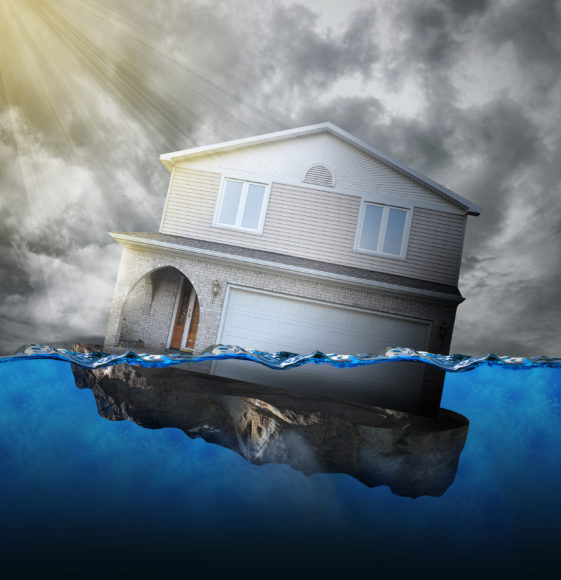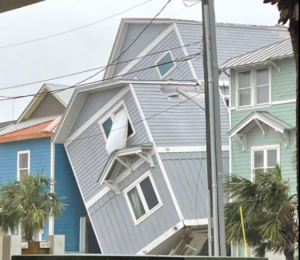Ahead of Florida’s 2024 legislative session that begins Jan. 9, at least a dozen bills have been filed that could have an impact on the state’s insureds and insurers. It’s a sign that lawmakers are under renewed pressure to take further steps to reduce still-rising property insurance rates.
Most of the bills have been introduced by Democrats, and they have been given little chance of passage in the Republican-controlled Legislature this year. But one measure, offered by Republican Rep. Alina Garcia, of Miami, has generated some buzz as a back-door approach to reducing exposure for insurers and cutting premiums for homeowners.
House Bill 809 and its companion, Senate Bill 1070, would require insurance companies to offer HO policies that cover only the unpaid principal on a mortgage. Such a move would satisfy mortgage company requirements that protect the loan but could conceivably trim premiums that are usually based on full coverage and the replacement value of a home.
“I don’t really see a downside to it for insurers,” said Chris Burand, a Colorado-based industry consultant who keeps an eye on the Florida market.

Technically, policyholders in most states already have the option of vastly under-insuring their properties, as long as the mortgage principal is covered. But in practice, insurance agency guidelines strongly encourage agents to protect homeowners and ensure that they understand the policy limits, Burand noted.
HB 809, in fact, would require the insurance policy to state, in 18-point type: “YOU ARE ELECTING TO PURCHASE COVERAGE AT A LIMIT THAT IS EQUAL TO ONLY THE UNPAID PRINCIPAL BALANCE OF THE MORTGAGE LOANS ON YOUR HOME. ACCORDINGLY, IN THE EVENT OF THE TOTAL LOSS OF YOUR HOME OR A LOSS FOR WHICH THE COST TO REPAIR YOUR HOME EXCEEDS THE UNPAID BALANCE ON YOUR MORTGAGE LOAN, YOU WILL INCUR SIGNIFICANT FINANCIAL LOSSES, INCLUDING THE POTENTIAL LOSS OF 36 SOME OF YOUR HOME’S EQUITY.”
But that may not be enough to fully inform some policyholders – homeowners who could easily be turned out of their damaged homes and have no money left to rebuild or to buy a new house after a hurricane, critics said. That could lead to claims litigation by irate homeowners.
The National Association of Insurance Commissioners has not seen similar legislation in other states, an official there said. And in Florida, the bill has met with some criticism.
“Frankly, it’s very bad public policy to encourage people to buy this coverage,” said Scott Johnson, an insurance educator and consultant in Florida. “There’s lot of additional work for both agents and carriers in making a required offer, there’s liability exposure for uncovered damages and possible E&O for the agent.”
And it’s not certain that a mortgage-only policy would save much on premiums, Johnson and Burand agreed. Proponents of the bill may suggest that, if a home is valued at $300,000 but has only $150,000 left on the mortgage, for example, then a mortgage-only insurance policy would surely slash premiums, right?
Not necessarily. Most HO policies include liability, law and ordinance and other coverage. Premiums for those items can help cover property losses for an insurer. Without economies of scale, carriers still have fixed costs and may have to charge a little more than might be expected for mortgage-only policies, the consultants said.
“I would never tell someone to consider this coverage option,” Johnson added. “It’s like sleeping in the park to save on rent.”
Other issues could complicate things. Contents would not be covered, perhaps resulting in a total loss for the insured. And most HO policies now require that at least 80% of the value of the home, which means new policy forms would have to be developed, said Bill Wilson, a certified underwriter and regular insurance industry commentator.
“The market in Florida is bad but this isn’t a solution,” Wilson said. “This just creates a secondary problem.”
He and Johnson noted that force-placed insurance already is available when mortgagees don’t insure their homes, and those policies can be quite pricey.
HB 809 also would bar insurance carriers from placing a coverage limit on the dwelling that would include the value of the land the house sits on.
“But if the policy only covers the structure, not the land, how do you divide that baby?” Burand asked.
And would the legislation apply to condominiums? Condo associations may object if the unit’s insurance does not fully cover repairs and replacement.
Garcia, who is in the real estate business, could not be reached for comment about her bill. HB 809 has been assigned to the House Insurance and Banking Subcommittee of the Commerce Committee. The text of the bill can be seen here.
**Article obtained from: Insurance Journal, By: William Rabb, Published 01/04/2023
https://www.insurancejournal.com/news/southeast/2024/01/04/754264.htm






